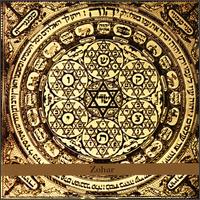
John Zorn is an American composer, conductor, saxophonist, arranger and producer who "deliberately resists category". His avant-garde and experimental approaches to composition and improvisation are inclusive of jazz, rock, hardcore, classical, contemporary, surf, metal, soundtrack, ambient, and world music. In 2013, Down Beat described Zorn as "one of our most important composers" and in 2020 Rolling Stone noted that "[alt]hough Zorn has operated almost entirely outside the mainstream, he's gradually asserted himself as one of the most influential musicians of our time".
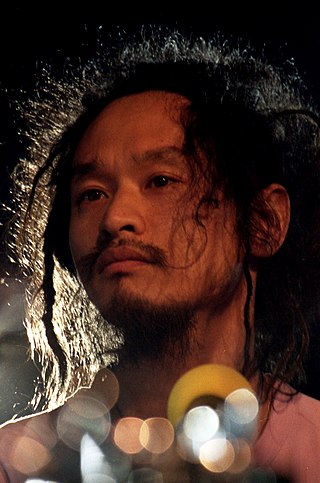
Yamataka Eye is a Japanese vocalist and visual artist, best known as a member of Boredoms, Hanatarash and Naked City. He has changed his stage name three times, from Yamatsuka Eye, to Yamantaka Eye, to Yamataka Eye, and sometimes calls himself eYe or EYヨ. He also DJs under the name DJ 光光光 or "DJ pica pica pica", and has used numerous other pseudonyms.

Lacrosse is a double album by John Zorn. It is made up of different takes of his early game piece, "Lacrosse". The first disc is from WKCR in June 1978 where Mark Abbott, Polly Bradfield, Eugene Chadbourne, and LaDonna Smith and Zorn recorded six different takes. Takes 3, 4 and 6 were originally released on the Parachute Records double LP School (1978). The second disc is the original recording of "Lacrosse" which was made by Eugene Chadbourne, Henry Kaiser, Bruce Ackley, and Zorn in San Francisco, California in June 1977.

Filmworks 1986–1990 features the first released film scores of John Zorn. The album was originally released on the Japanese labels Wave and Eva in 1990, on the Nonesuch Records label in 1992, and subsequently re-released on Zorn's own label, Tzadik Records, in 1997 after being out of print for several years.
"For Zorn, filmscores have always been a place to experiment, and the FilmWorks Series is in many ways a microcosm of his prodigious output. This original installment of the FilmWorks Series presents three scores ranging from punk-rockabilly ; a jazzy Bernard Herrmann fantasy; to a quirky classical/improv/world music amalgam for Raul Ruiz's bizarre film The Golden Boat. Zorn's infamous one-minute arrangement of Morricone's classic The Good, The Bad and The Ugly, is included as a bonus track. This is the place where it all began."

The Circle Maker is a double album by John Zorn featuring Zorn's Masada compositions performed by the Masada String Trio and the Bar Kokhba Sextet which was released in 1998 on the Tzadik label.

Taboo & Exile is an album by John Zorn. It is the second album to appear in Zorn's Music Romance Series following Music for Children (1998). Three of the tracks on this recording are from Zorn's Masada songbook.
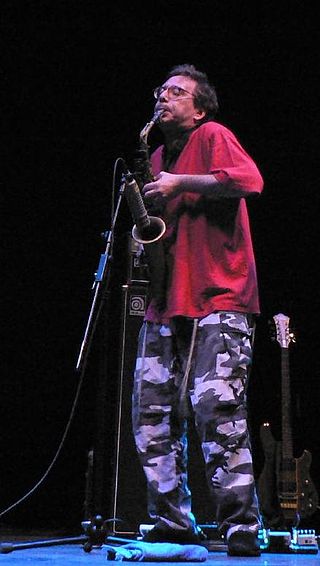
John Zorn appears on over 400 recordings as a composer or performer. This is a selection of recordings released under his name, bands he was/is part of, collaborations with other musicians, and significant albums to which he has contributed. The year indicates when the album was first released and any subsequent years if the following release included additional material.
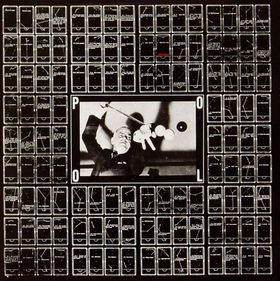
Pool is an album by John Zorn featuring his early "game piece" composition of the same name which was first released on vinyl on Parachute Records in 1980 as a double album including the composition "Hockey". The album was released on CD on Tzadik Records with an additional bonus track featuring a test recording of Archery as part of The Parachute Years Box Set in 1997 and as a single CD in 2000. The album was the first released solely under Zorn's name following his collaboration with Eugene Chadbourne, School (1978).

Ganryu Island is an collaborative album by John Zorn and Michihiro Sato. The album was first released on vinyl LP on Yukon Records in 1984 and later re-released on Tzadik Records as a CD with five additional tracks in 1998.

The Bribe: variations and extensions on Spillane is an album by American composer and saxophonist/multi-instrumentalist John Zorn, consisting of music created for three half-hour radio plays produced by Mabou Mines theater company in 1986. It utilizes compositional techniques, source material, and personnel that are similar to Zorn's Spillane.
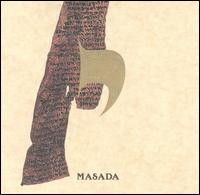
Masada: Yod, also known as י or Masada 10, is a 1998 album by American composer and saxophonist John Zorn released on the Japanese DIW label. It is the tenth album of Masada recordings.

Filmworks II: Music for an Untitled Film by Walter Hill features the second release of scores for film by American composer John Zorn. The album was originally released on the Japanese Toys Factory label in 1995 and subsequently re-released on Zorn's own label, Tzadik Records, in 1996. It features the music that Zorn wrote and recorded for Trespass which director Walter Hill rejected in favour of a score by Ry Cooder.

Filmworks III: 1990–1995 features the scores for film and advertisements by John Zorn. The album was originally released on the Japanese labels Evva in 1995 and Toys Factory in 1996 and subsequently re-released on Zorn's own label, Tzadik Records, in 1997. It features the music that Zorn wrote and recorded for Thieves Quartet (1993), directed by Joe Chappelle, which was performed by the group that would become Masada; nine cues for Kiriko Kubo's Music For Tsunta (1988); eleven tracks for Hollywood Hotel (1994), directed by Mei-Juin Chen; and thirty-two pieces for advertisements by Wieden & Kennedy.

Filmworks V: Tears of Ecstasy is a film score by John Zorn. The album was released on Zorn's own label, Tzadik Records, in 1996. It features the music that Zorn wrote and recorded for the movie Tears of Ecstasy (1995) by director Oki Hiroyuki.

Live in Taipei is a double live album by John Zorn's Masada recorded at the Crown Theatre in Taiwan's capital city Taipei. The album is mistakenly dated 1995, while the performance was actually taken place in 1996.

50th Birthday Celebration Volume 10 is a live album of improvised music by Yamataka Eye and John Zorn documenting their performance at Tonic in September 2003 as part of John Zorn's month-long 50th Birthday Celebration concert series. Guitarist Fred Frith also appears on one track.
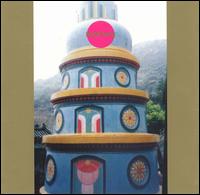
Nani Nani is an album of improvised music by American composer and saxophonist/multi-instrumentalist John Zorn and Yamataka Eye. A sequel album Naninani II was released in 2004.

Aporias: Requia for Piano and Orchestra is an album of contemporary classical music by American composer and saxophonist/multi-instrumentalist John Zorn performed by Stephen Drury, the Hungarian Radio Children's Choir and the American Composers Orchestra.

Naninani II is an album of improvised music by American composer and saxophonist/multi-instrumentalist John Zorn and Yamataka Eye. It is a sequel to their previous album Nani Nani which was released in 1995.

The Parachute Years: 1977–1981 is a compilation album 7-CD box set by John Zorn. It features recordings of Zorn's game pieces originally released as self-produced albums on the Parachute label as well as previously unreleased performances. All of the discs in this box set have been subsequently given their own releases on Zorn's Tzadik label.
